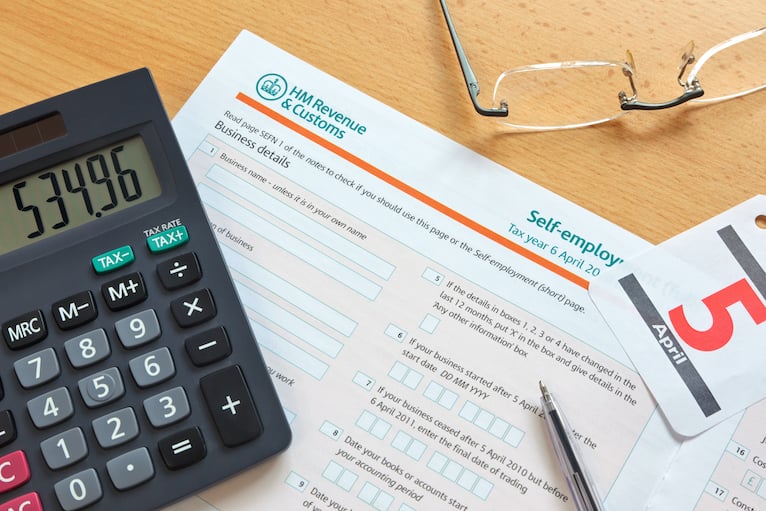Becoming a sole trader or limited company
Whether you’re just about to start up or you’ve been trading for years, we’re here to help you understand the difference between sole trading and limited companies. So, you’ll be able to choose the right way to operate for your business.
What’s the main difference between a sole trader and a limited company?

Being a sole trader
Gov.uk says that you can keep all your business’s profits after you’ve paid tax on them, if you’re:
- A sole trader,
- Self-employed, and
- Run your own business individually.
You’ll be personally responsible for any losses that your business makes.
You must be registered with HMRC for self-assessment and if your turnover is £85,000 or more, you must register for VAT. Plus, from April 2021, you must register for the Making Tax Digital for VAT service.
Being a sole trader can be financially beneficial for some smaller businesses, but it is riskier as you take full liability. The worst-case scenario for a sole trader is being forced to apply for bankruptcy. This could potentially lead to you losing your house or possessions and damaging your credit history.
Being a limited company
On the other hand, a limited company is legally separate from its director(s). So, you cannot be held personally responsible if the business runs into financial problems (excluding criminal activity). A director’s personal assets (e.g., house and car) will always be protected if the company is liquidated.
However, running a limited company can be complicated as there’s more admin and duties required from the director(s). Having an accountant is usually a necessity.

A limited company must register with Companies House for a fee. Plus, they must name at least one director and one guarantor (who could be the same person.) If a company’s turnover is £85,000 or more, it must also register for VAT and use the Making Tax Digital service from April 2021.
What’s the difference in getting paid as a sole trader in comparison to a limited company?
The other main difference between a sole trader and limited company is the way you pay tax and yourself. If you operate as a limited company, you’ll pay Corporation Tax (currently 19%) on annual company profits. Company directors usually pay themselves both a salary and dividends, but the salary is the only part that will be subject to Income Tax and National Insurance. Their yearly salary and dividends will still need to be declared in an annual tax return and they will still receive a standard Personal Allowance of £12,500, unless their total income and dividends are over £100,000.
As a sole trader, you can keep all your profits after you’ve paid income tax on them. The rate of income tax you pay depends on your income. Currently (at the time of writing) there is a Personal Allowance of £12,500 which you pay 0% on, the Basic rate (£12,501 to £50,000) is 20% and the Higher rate (£50,001 to £150,000) is 40%.
Which is better?

The business structure that you choose depends on what kind of business you want to create.
Benefits of becoming a sole trader
If you think you will remain a small and simple business, being a sole trader can really be an advantage. Your accounting process will be much easier, meaning you may not need an accountant, it’s simpler to pay yourself, there’s less paperwork and you don’t need share business information with the public, keeping your finances private.
Benefits of becoming a limited company
However, if you intend to scale up your business and hire multiple employees, a limited company is a better option. Plus, there is generally scope to make more profit as a limited company. Firstly, your company’s credit rating does not rely on your personal credit rating, so you can borrow more to invest in and expand your business. If you create a popular brand and business, but decide you want to do something else, it’s also far easier to sell an incorporated limited company.
Changing from a sole trader to a limited company

If you want to switch to trading as a limited company, there are a number of things you’ll need to do. The government has a full step by step plan for setting up a private limited company, but the key things include:
- Checking you can use your existing business name as your company name.
- Setting up a separate business bank account, if you don’t already have one.
- Registering your company with Companies House.
- Working out how you want to pay yourself.
If you don’t have an accountant, now may be the time to find one. They can help you with setting up and running your limited company.




